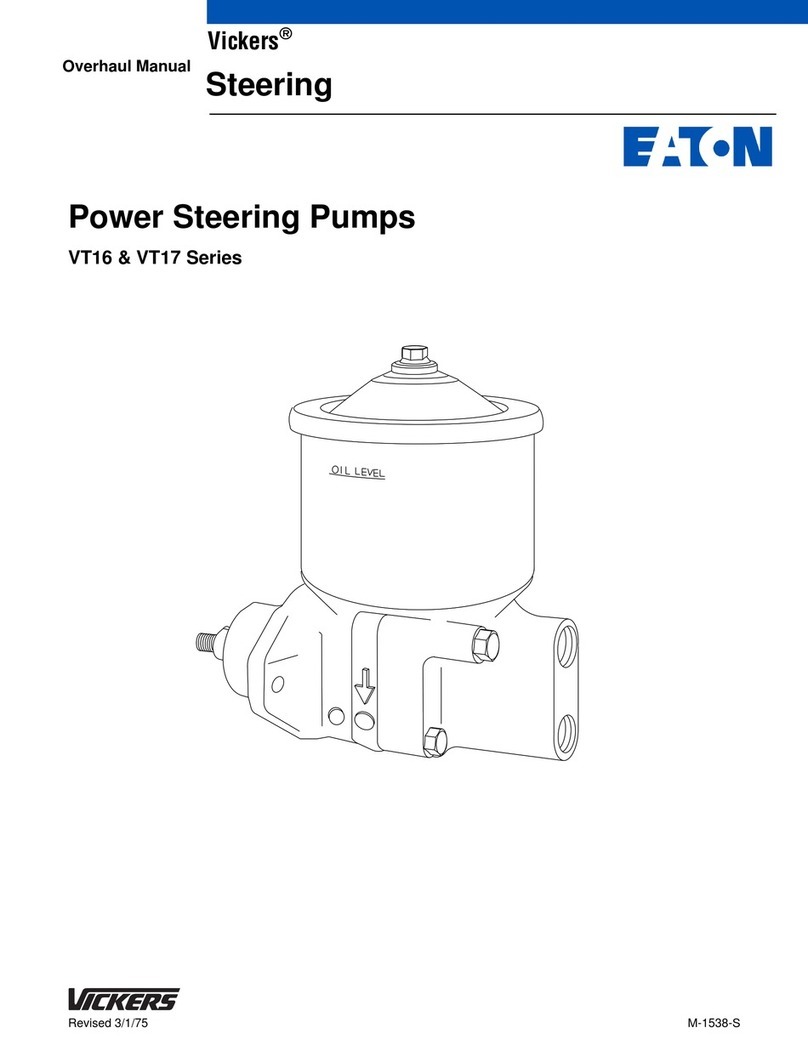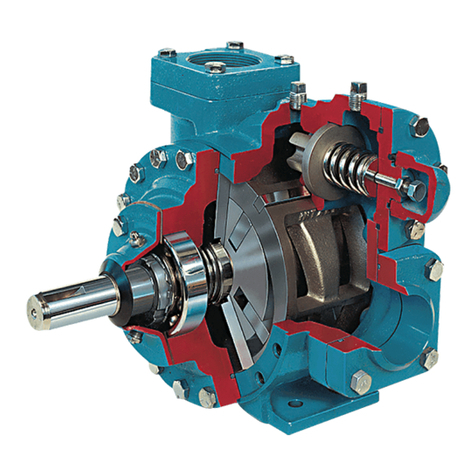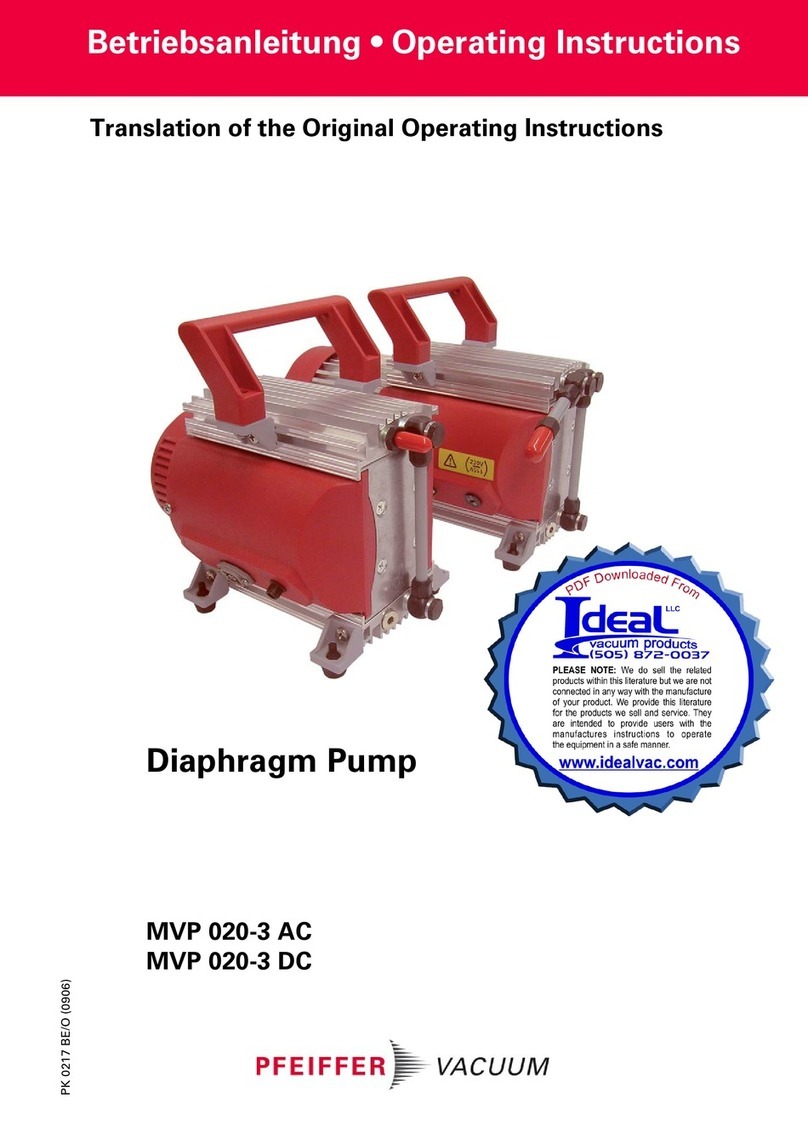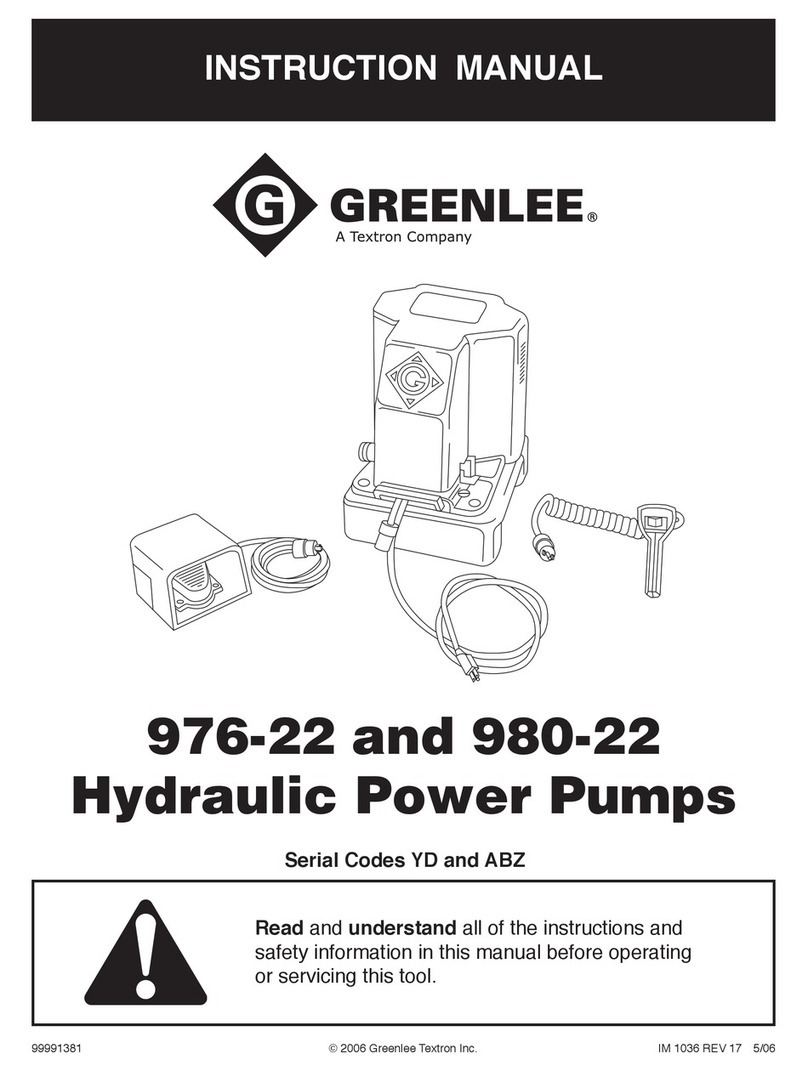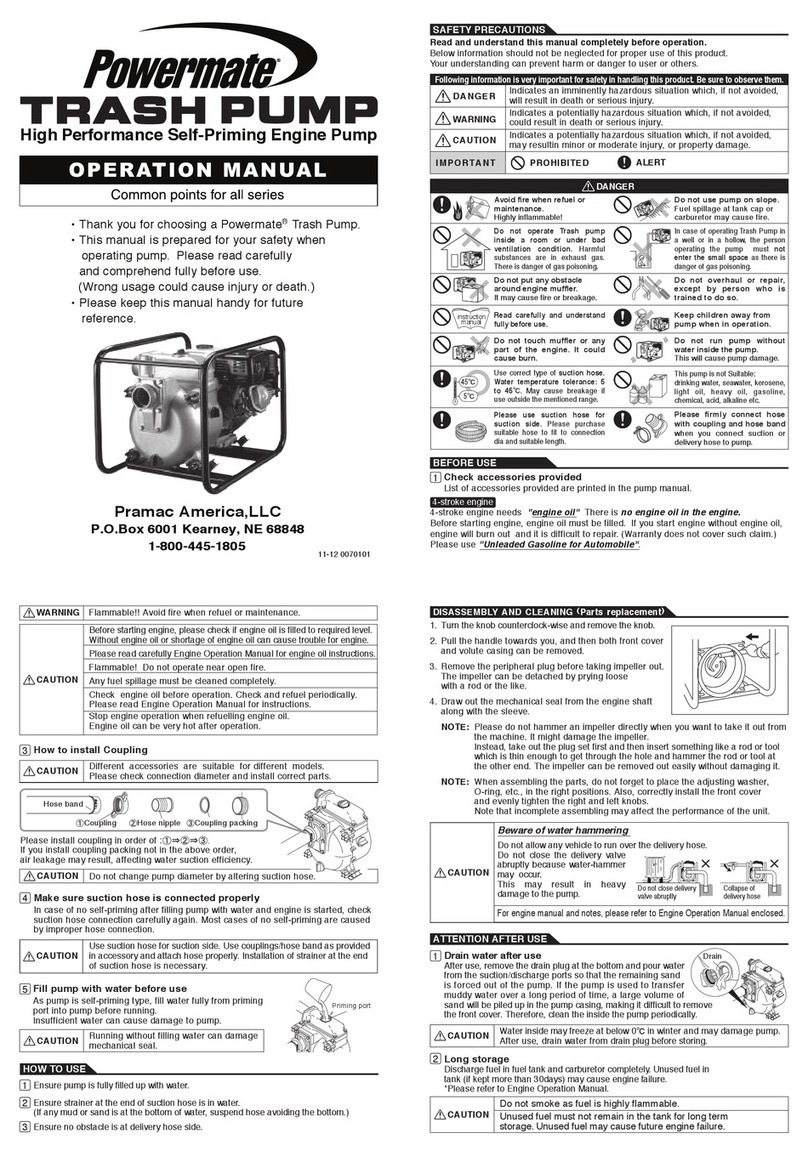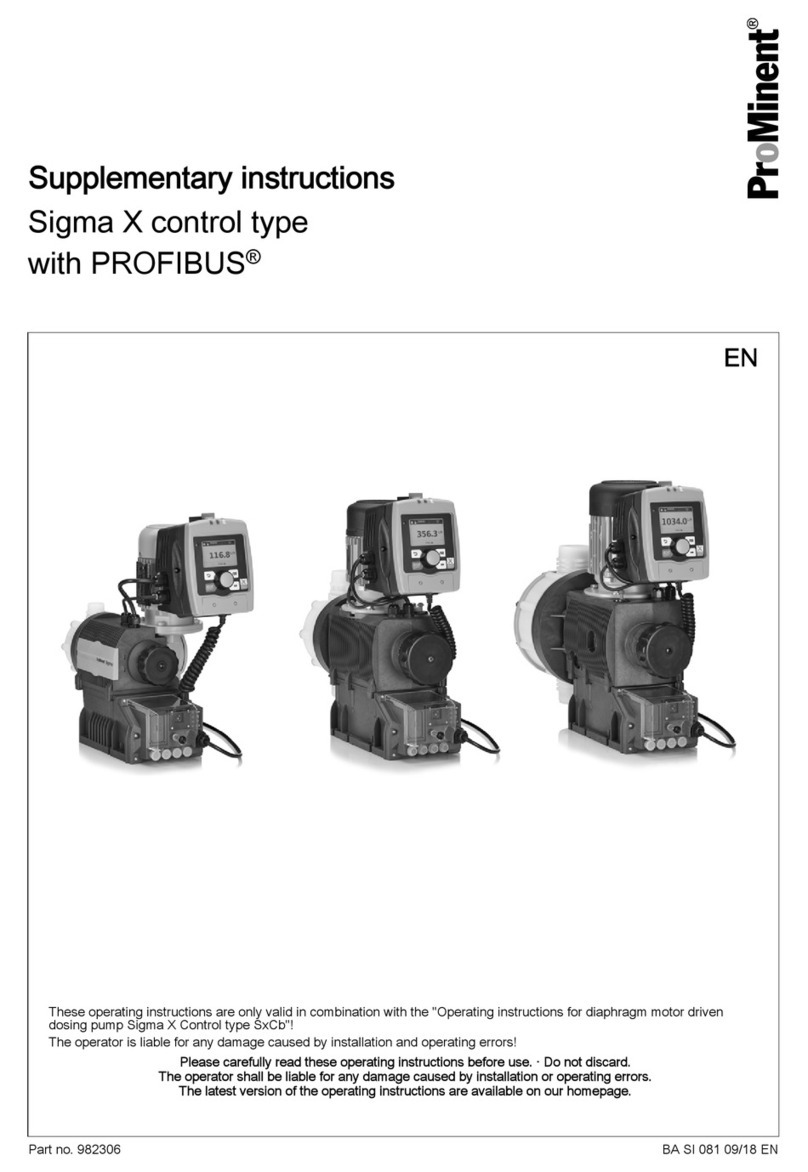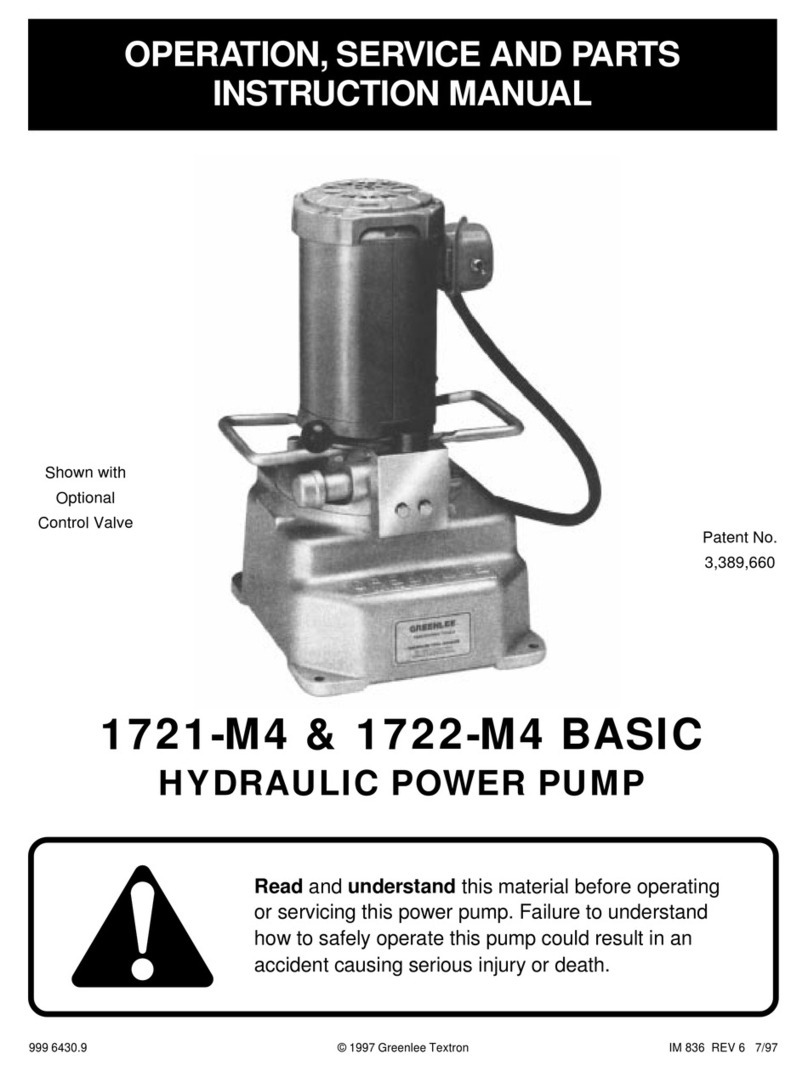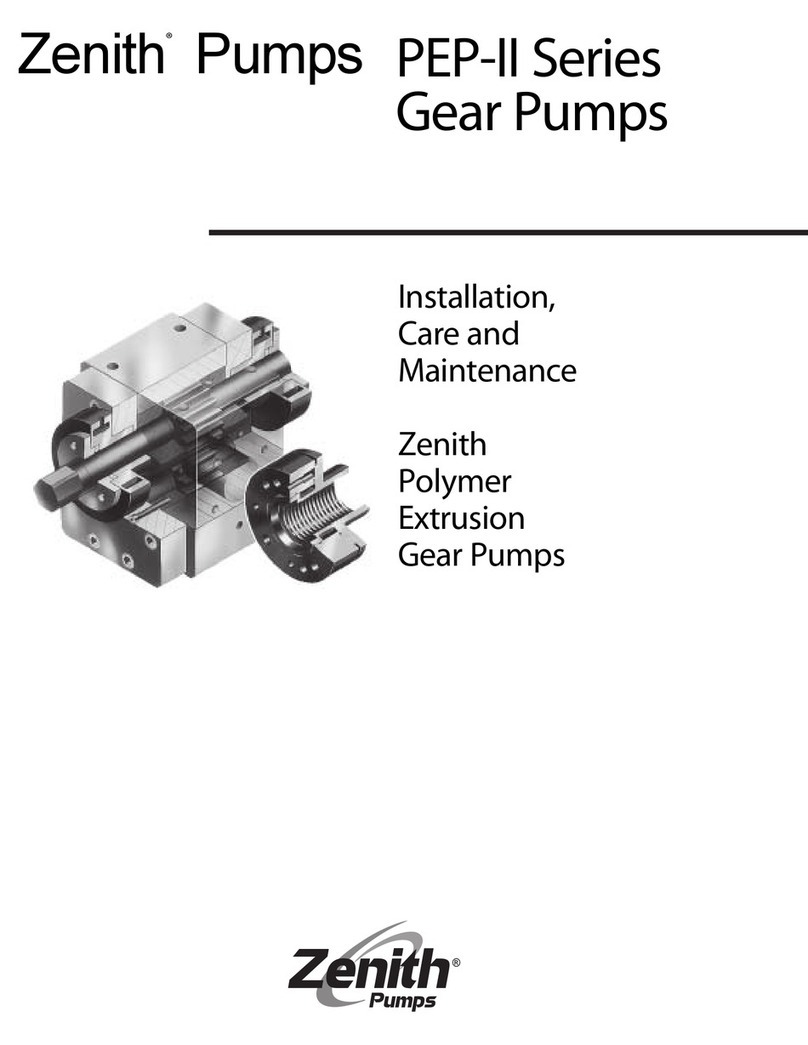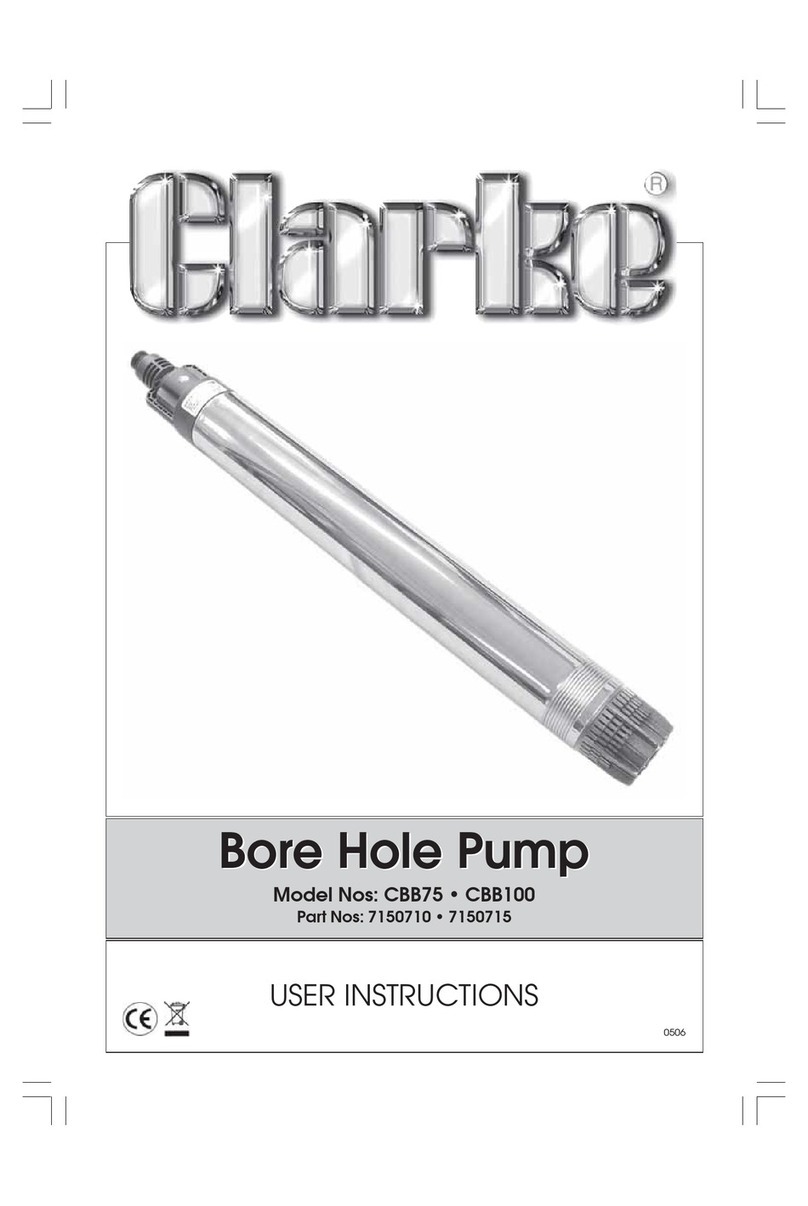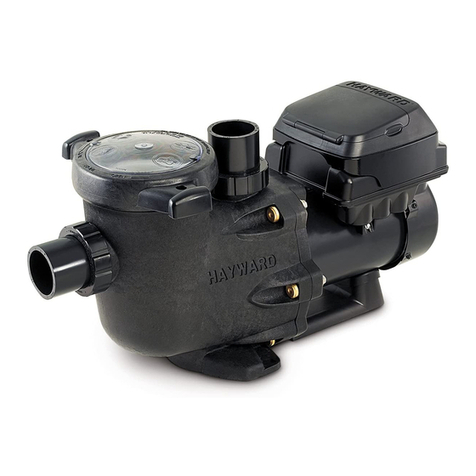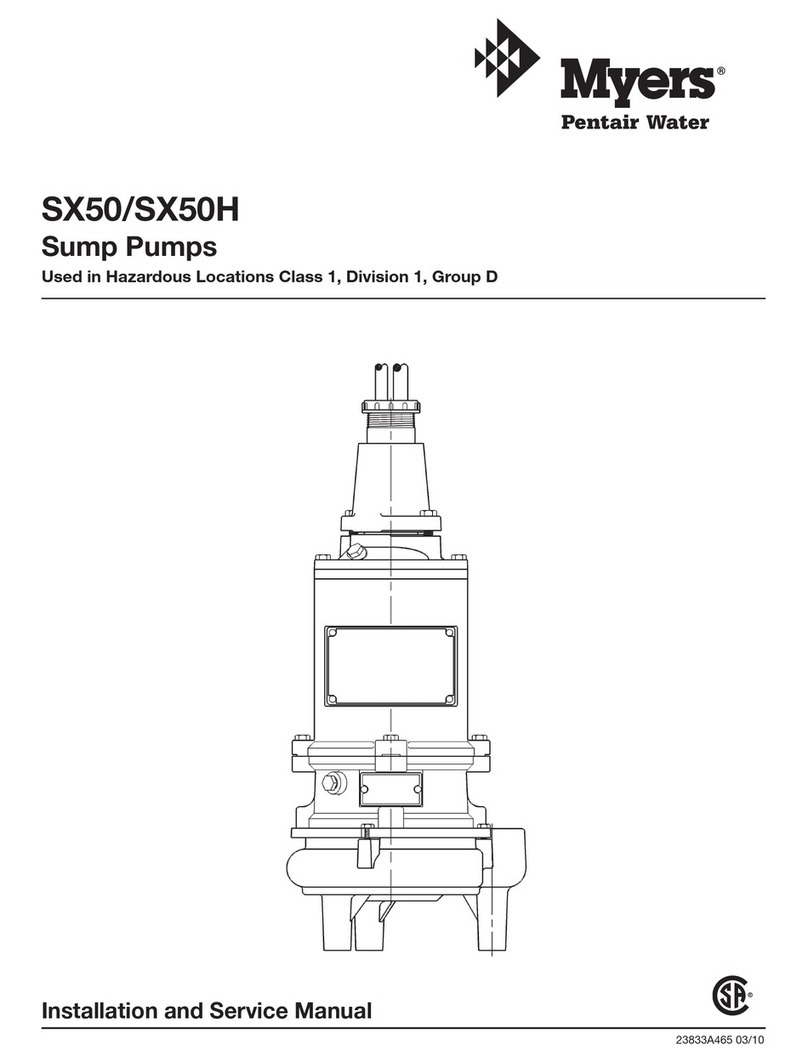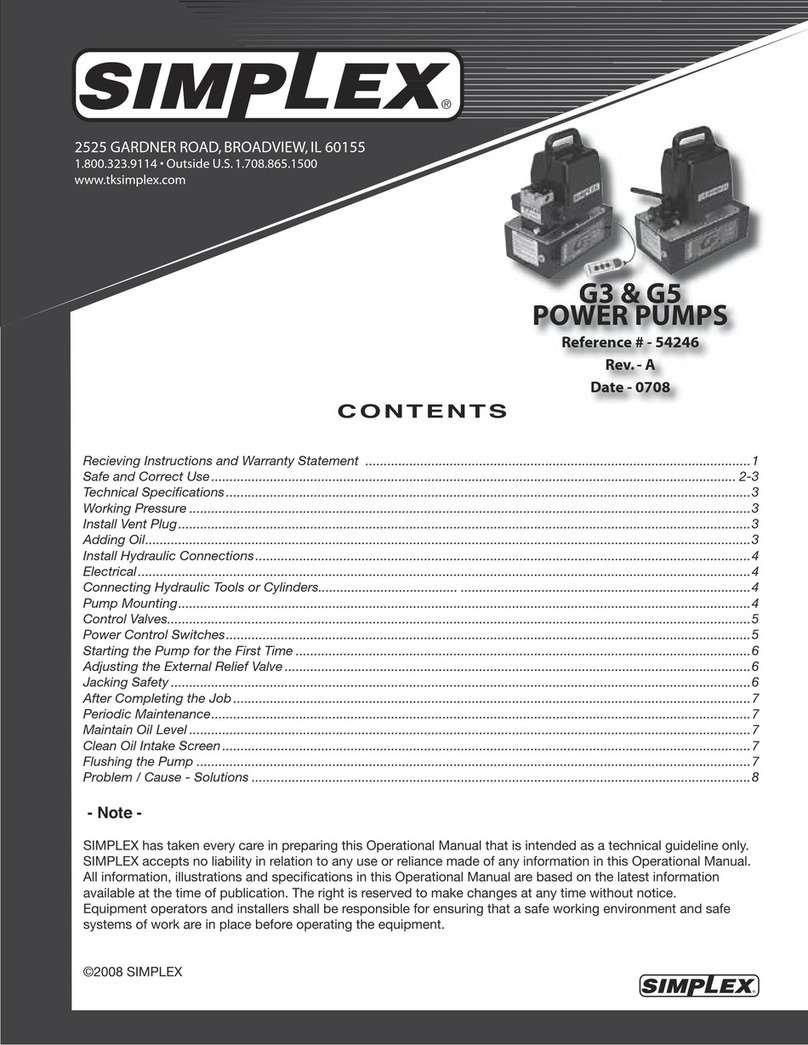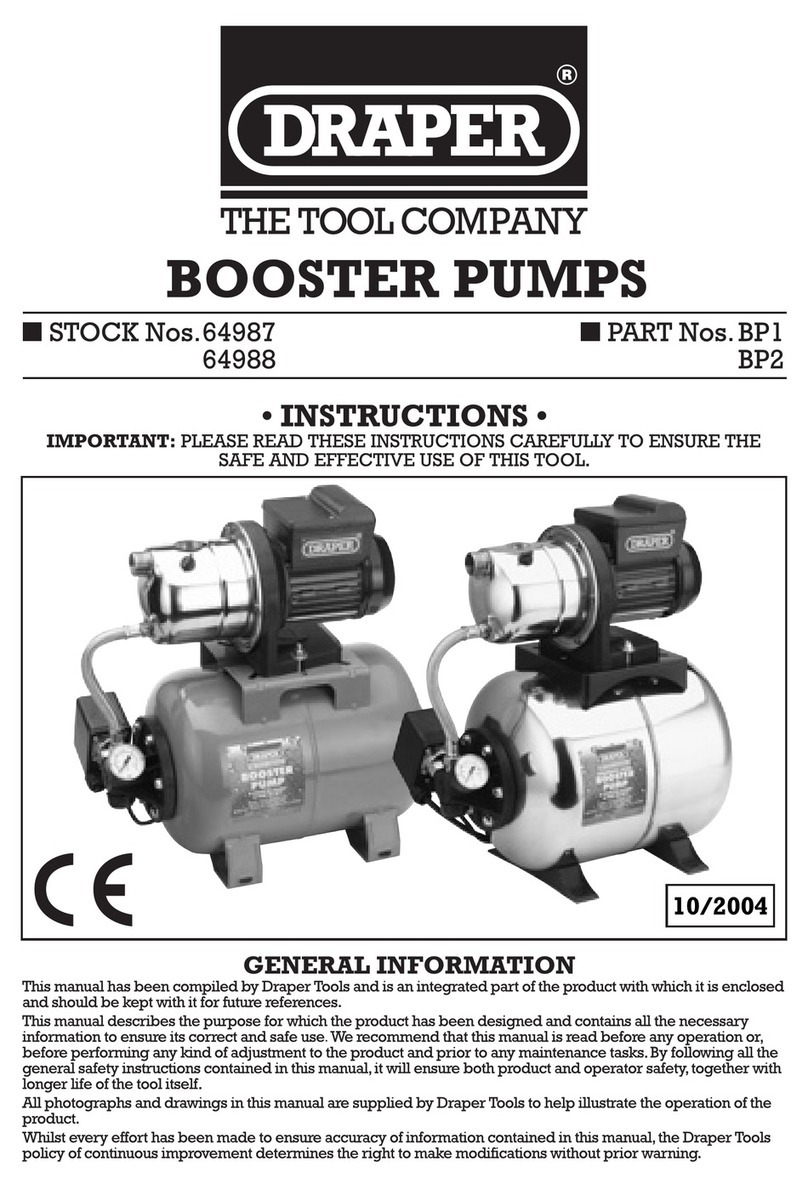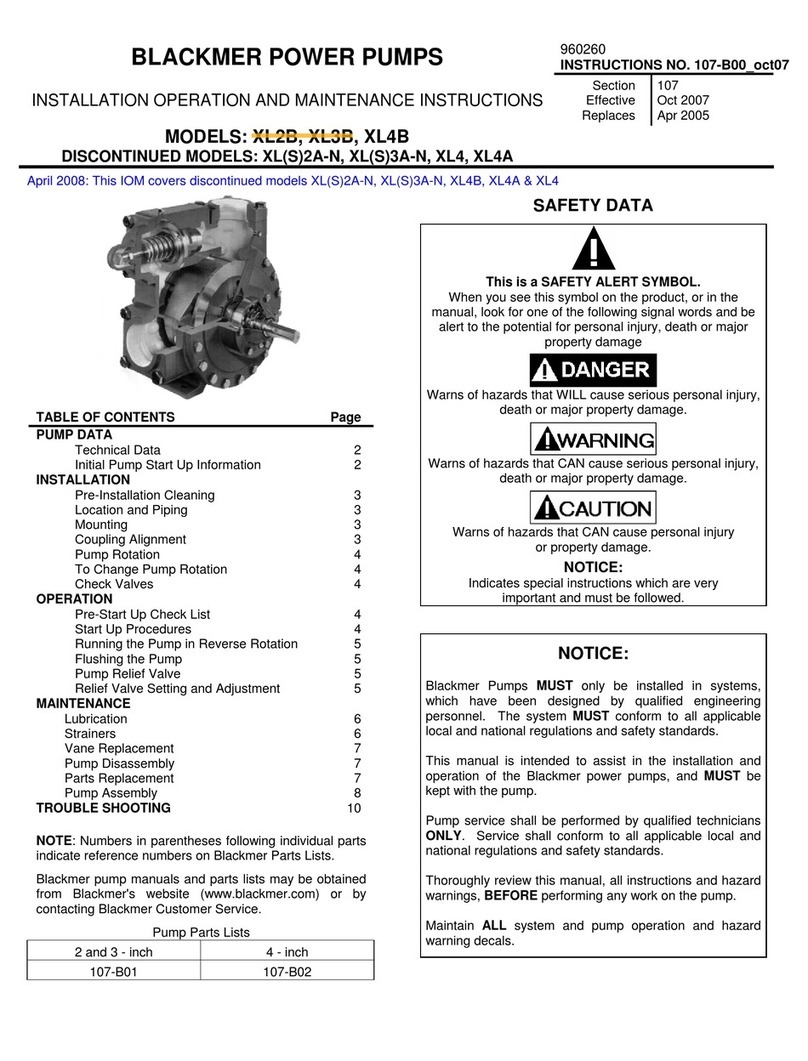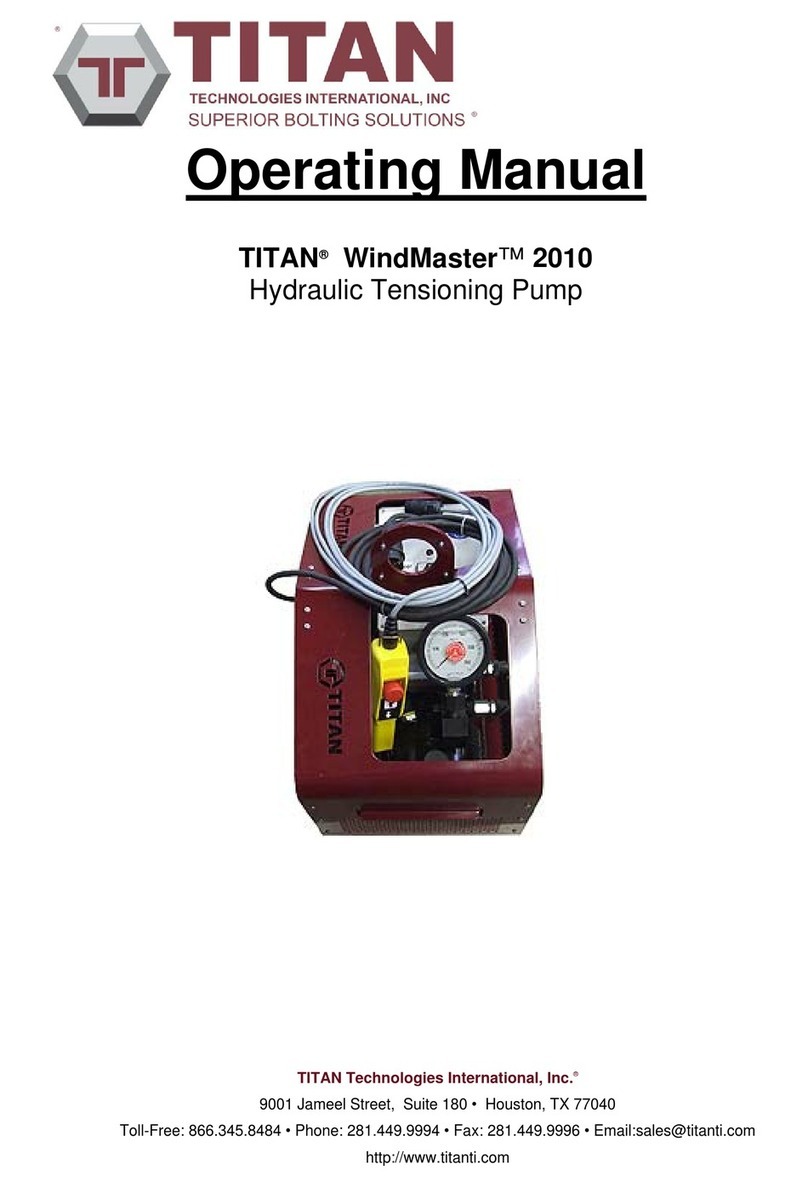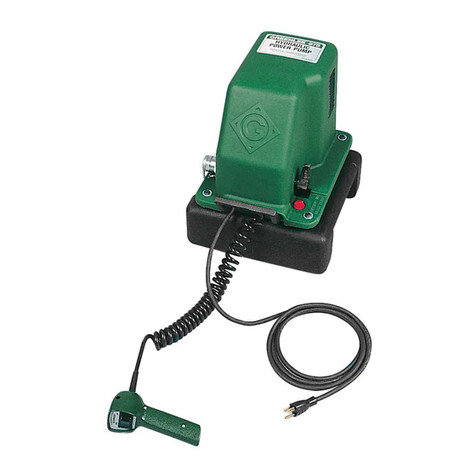
USE ONLY HAYWARD GENUINE REPLACEMENT PARTS
Page 5 of 36 2.70 THP VS Pump Family IS3206VSP3 Rev-B
WARNING – Pool and spa components (seals, gaskets, etc.) have a finite life. All components should be
inspected frequently and replaced at least every ten years, or if found to be damaged, broken, cracked, missing, or
not securely attached.
WARNING – Risk of Electric Shock. All electrical wiring MUST be in conformance with applicable local
codes, regulations, and the National Electric Code (NEC). Hazardous voltage can shock, burn, and cause death or
serious property damage. To reduce the risk of electric shock, do NOT use an extension cord to connect unit to
electric supply. Provide a properly located electrical receptacle. Before working on pump or motor, turn off power
supply to the pump.
WARNING – To reduce the risk of electric shock replace damaged wiring immediately. Locate conduit to
prevent abuse from lawn mowers, hedge trimmers and other equipment.
WARNING – Risk of Electric Shock. In accordance with the National Electric Code (NEC), connect only to a
branch circuit protected by a ground-fault circuit-interrupter (GFCI). Contact a qualified electrician if you cannot
verify that the circuit is protected by a GFCI. The unit must be connected only to a supply circuit that is protected by
a ground-fault circuit-interrupter (GFCI). Such a GFCI should be provided by the installer and should be tested on a
routine basis. To test the GFCI, push the test circuit button. The GFCI should interrupt power. Push the reset button.
Power should be restored. If the GFCI fails to operate in this manner, the GFCI is defective. If the GFCI interrupts
power to the pump without the test button being pushed, a ground current is flowing, indicating the possibility of an
electric shock. Do not use this pump. Disconnect the pump and have the problem corrected by a qualified service
representative before using.
WARNING – Failure to bond pump to pool structure will increase risk for electrocution and could result in
injury or death. To reduce the risk of electric shock, see installation instructions and consult a professional
electrician on how to bond pump. Also, contact a licensed electrician for information on local electrical codes for
bonding requirements.
Notes to electrician: Use a solid copper conductor, size 8 or larger. Run a continuous wire from external bonding lug
to reinforcing rod or mesh. Connect a No. 8 AWG (8.4 mm2) [No. 6 AWG (13.3 mm2) for Canada] solid copper bonding
wire to the pressure wire connector provided on the pump housing and to all metal parts of swimming pool, spa, or
hot tub, and to all electrical equipment, metal piping (except gas piping), and conduit within 5 ft. (1.5 m) of inside
walls of swimming pool, spa, or hot tub. IMPORTANT - Reference NEC codes for all wiring standards including, but
not limited to, grounding, bonding and other general wiring procedures.
WARNING – Suction Entrapment Hazard. Suction in suction outlets and/or suction outlet covers, which are
damaged, broken, cracked, missing, or unsecured cause severe injury and/or death due to the following entrapment
hazards (symbols complements of APSP):
Hair Entrapment - Hair can become entangled in suction outlet cover.
Limb Entrapment - A limb inserted into an opening of a suction outlet sump or suction outlet cover that is damaged,
broken, cracked, missing, or not securely attached can result in a mechanical bind or swelling of the limb.
Body Suction Entrapment - A differential pressure applied to a large portion of the body or limbs can result in an
entrapment.
Evisceration/ Disembowelment - A negative pressure applied directly to the intestines through an unprotected
suction outlet sump or suction outlet cover which is damaged, broken, cracked, missing, or unsecured can result in
evisceration/disembowelment.
Mechanical Entrapment - There is potential for jewelry, swimsuits, hair decorations, fingers, toes, or knuckles to be
caught in an opening of a suction outlet cover resulting in mechanical entrapment.
Note: See section 4.11 for SVRS-related notes

